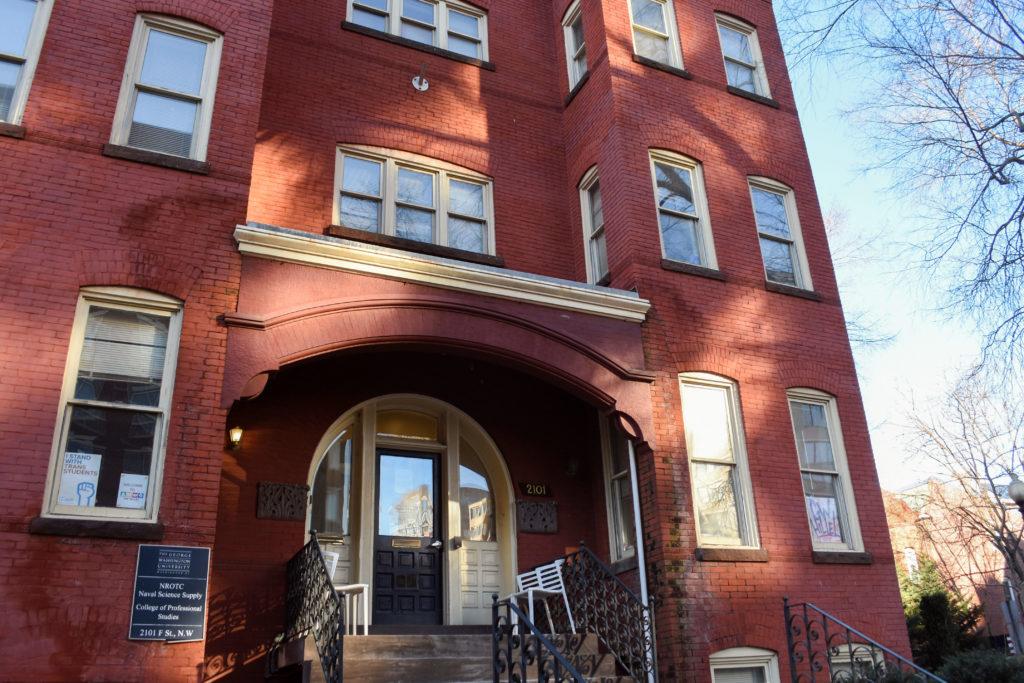GW Hillel is trying to help students better understand how their Jewish faith is tied to Israel.
The organization opened an application last week for the Israel Discussion Club fellowship, a group of up to 10 students that will meet for weekly conversations about politics and culture in Israel. Keren Azaria, a GW Hillel Israel fellow, will lead each meeting and bring in guest speakers from the country to give students an educational space to “think critically” about Israeli politics, society and culture, she said.
“We hope that the students that will participate in the Israel Discussion Club will gain knowledge, broaden their horizons and feel more comfortable engaging with Israel-related conversations,” she said in an email. “We hope the discussions we will be having in the club will continue on campus and will create an opportunity for dialogue.”
Students involved in the club will attend six weekly meetings on Tuesday evenings between Jan. 29 and March 5. Participants will each receive a $150 stipend from GW Hillel for attending the meetings.
Azaria said the discussions will focus on topics like Israeli culture and the history of the country when it first became an official state. Azaria will facilitate and choose the topics for discussion, and students involved in the club will analyze poems and texts related to each topic, she said.
She said she will also invite an Israeli journalist to talk with the group about Israeli politics and the country’s upcoming national election, but she declined to name the journalist.
“We are hoping to create a space for open conversations where students will be voicing their opinions and discussing with their peers,” she said.
Rabbi Dan Epstein, the senior Jewish educator at GW Hillel, said student leaders capped the number of participants in the group to about 10 to ensure everyone has an opportunity to talk during each meeting.
He said the group will also allow students to discuss heated topics on campus related to Israel, like a pro-Palestinian divestment resolution that the Student Association Senate has debated for the past two years. The resolution passed in the spring after narrowly failing a year before, but University President Thomas LeBlanc rejected the measure.
“When something in Israel happens, good or bad, do you feel ashamed? Do you feel proud?” Epstein said. “We think it’s really important to have the discussion and bring people together.”
GW Hillel has formed several small-scale student groups over the past semester to help students explore the intersection of Jewish and LGBTQ identities and engage current members with young alumni of the organization.
Sophomore Jared Bach, a Hatchet opinions writer and a member of the discussion group, said he signed up to ensure he is “arming himself with information” about Israeli politics and culture before he lives in the country later this year to intern and study abroad.
“I had become really passionate about Israel, or the fact that there is this state for Jewish people, and I know that it’s an imperfect state, like any state, and I want to learn more about it from my peers,” he said.
Bach said he’s most interested in learning about the conflict on the West Bank, a contested territory where both Palestinians and Israelis live, and the controversial Boycott, Divest and Sanctions movement – also known as BDS – that encourages nonviolent methods of pressuring Israel to stop occupying Palestine.
“When people ask me questions about Israel as a Jew, I can be more confident in what I’m saying and my opinion, because I’m still not super opinionated,” he said. “I still don’t feel super educated, and I want to be more educated so if a student is going to talk to me about BDS, which I don’t support, I want to be able to counter that.”





